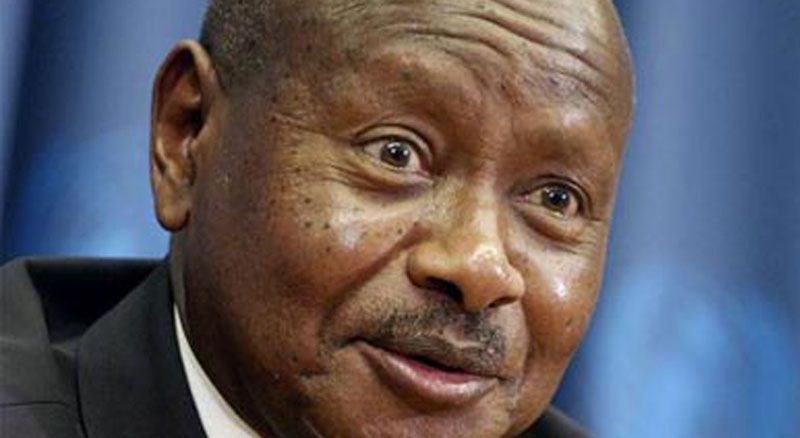
It’s the weight of kisanja politics that is destroying the economy
What exactly is going on? Why is the economy doing so badly? Where are we heading? These are some of the question several people have asked me this week. People are justifiably very worried. Money is very scarce, erectile yet the little people earn has lost value. It is a tug of war to earn some little money but when people look at quantities of items they’ve spent it on, they cannot believe it. So, what the hell is going on?
Mr. President, in January 1986, when you took over state power, you found a country and an economy in ruins. There were no goods to buy, but people had a lot of money. This was understandable because we were coming out of a very bad war. So, inflation had reached 240% mainly due to total lack of financial control in government ministries and parastatals leading to huge budget deficits, financed by printing money.
But since President Museveni of then was a man with sufficient intellectual self-confidence, and thus loved open debate particularly on economic matters, in May 1986, when the economy was moving in the direction it is taking right now, you invited the International Development Research Centre (IDRC) of Canada to set up a study team to review the state of the economy and advise government on the way forward.
The team included brains in their prime, such as Emmanuel Tumusiime-Mutebile, then working as government’s Chief Economist, the late Sulaiman Kiggundu who was then working at the IDRC, and other economists both international and Ugandan.
The Kiggundu side won the debate when they recommended a ‘control model’ — using administrative controls to keep the prices low and revaluing the shilling to make imports cheap.
Kiggundu even earned himself a job as Governor Bank of Uganda, which he held until 1990 when you realised, or is it the IMF that opened your eyes, that controls were distorting the economy and had brought back most of the bad economic ramifications that had been experienced in the 1970s under Amin.
Investing in non-tradables
Mr. President, this is what you wrote on page 183 of the Sowing the Mustard Seed, “We had to resolve some conceptual problems because many of the people we spoke to (in 1986) were structural economists concerned with restructuring the economy in a physical manner, such as building roads, factories and so on. I think where the IMF helped us was in making us realise the importance of macroeconomic tools…This was something many of our people did not understand at first.”
When I see what is going on right now, it is a perfect mirror image of what happened at the beginning of NRM regime. First, signs are that the so-called “structural economists” have reclaimed the top spot in economic policy management. Once again, it’s roads, dams, and buildings that matter. Of course they matter, always, but to what magnitude do you invest in these non-tradables?
Second, in those early days, Mr. President, the economy was being ruined by fiscal and monetary indiscipline. You were expanding government expenditure toward unproductive activities which led to huge budget deficits often financed through borrowing from Bank of Uganda. In 1988, for example, money supply (the so-called M2, the money that circulates in the economy plus the deposits in banks) increased by 209% — sheer madness.
Today, you are doing exactly the same. The budgetary expenditure on government and politics is rising every passing day. The other day you gave each MP more than Shs.100 million in campaign money. We have over 385 MPs, meaning that we blew over Shs. 3.85 billion. And the number of MPs is going to increase next term, and also you are creating more municipalities. On top of this, an undisclosed amount of billions is being spent ahead of the 2016 general elections.
Fiscal indiscipline
As a result, money supply has increased forcing the central bank to tighten its monetary policy to curb the inflation that has started to rise. Inflation increased to 5.4% last month, and the BOU predict more inflationary risk in its economic outlook.
The shilling continues to depreciate and will depreciate further as inflation rises. Thus the BOU has increased its policy rate to 16%, with the intention to force banks to increase the lending rates to make us unable to borrow.
Mr. President, this country and economy have a history. It is a history where you have been a key player. In 1992, when macro instability had persisted, with inflation galloping at 52% per annum despite several reforms, you said, “There will be no inflation. Inflation is indiscipline. If there is no money then we will close down some ministries and walk.”
You demanded that monetary and fiscal discipline be restored by implementing three basic principles: (1) prudence: expenditure by government be in line with revenue. No more unnecessary borrowing; (2) sustainability: no expenditure commitments that couldn’t be sustained over the medium and long term be made; and (3) consistency: all expenditures must be in line with the government’s long term goal — the 5th point in the NRM’s Ten Point Programme, which stated, “Building an independent, integrated and self-sustaining economy.”
Within eight months after this commitment inflation reduced from 52% to 6.1%. Money supply reduced to 42% and the economy started to grow at above 6.3%. The economy never looked back until 2008/09 when things started to go wrong once again.
Since 2008/09, the economy has never hit the 7% growth rate target, Bank of Uganda has been turned into a fire extinguishing institution to keep the inflation under check, exchange rates have been depreciating at a rate faster than ever before, and interest rates have remained high and rising to keep the inflation under check.
Kisanja politics
What happened? Why has the economy gone back to the pre-1993 shape? The official position at BOU and Ministry of Finance is that the economy is largely being affected by the global economic challenges — the global economic recession, strength of the dollar lately etc. However, all indicators show that the global financial and economic crisis simply coincided with a silent resurge of fiscal indiscipline.
It all started in 2005 with the political maneuvers to remove the Constitutional two-term limit to allow you, Mr. President, to stand again and again and again. The kisanja politics forever changed the institutional infrastructure of the country. Your supporters and campaigners, Mr. President, are holding you hostage and have forced you to repeat the pre-reform mistakes.
You are spending a lot of money on politics and patronage. The size of your government has expanded geometrically yet revenues to support it are increasing at an arithmetic rate.
Any well-intentioned person should question the logic of expanding a legislature that is already one of the largest in the world, a cabinet of over 70 ministers (the second largest cabinet in the world, after North Korea), so many RDCs, an extensive list of presidential advisers and other hangers-on, an extensive local government spread around 112 districts, and an indefinable army of NRM cadres.
You cannot avoid inflation and currency depreciation when you are spending most of your money looking after people who do not produce anything. Mr. President, you are being held hostage by thieves, manipulators, and opportunists. Your people now know that as long as you mobilise support for Museveni to retain power, you can steal as much as you can get your fingers on, and nothing will happen.
Corruption
Although there has always been corruption and theft of public money, evidence shows that Uganda has never seen the corruption scandals we’ve had since 2007. It all started with the CHOGM scandal where $27 million were stolen.
Then the stealing spree went on unabated: Global Fund (2008) = $37 million, GAVI Fund (2008) = $4.6 million, Temangalo (Workers’ Fund at the NSSF) again in 2008 and Shs.11 billion was squandered, National IDs (2010) = Shs.19 billion; Bicycles for LCs (2011) = $1.7 million; Microfinance Support Centre (2011) = Shs.60 billion; and Basajjabalaba/BOU (2011) = Shs.169 billion.
Others include the EAC pension scheme (2012) = Shs.169 billion, Office of the Prime Minister (OPM) scandal (2012) = Shs.50 billion, and Katosi road (2014) where Shs. 24.7 billion was shared by your supporters.
Mr. President, you can hardly arrest and jail any thief because you need their support. That is really worrying. Yet what is even more worrying is the fact that some of your manipulators have started to justify corruption.
The other day I spent the whole day debating with Andrew Mwenda, hither-to a celebrated activist journalist against corruption and bad governance generally. He is saying he has since discovered that corruption has no effect on economic growth and/or development of a country.
I asked Mwenda to tell us when he discovered that corruption had no effect on the economy since he used to see its impact and authored many articles in the Monitor newspaper, and even wrote research papers confirming the same. He tweeted, “I was not yet well schooled…” May be he wanted to mean “skewed” instead of schooled.
Can you imagine the damage you, Mr. President, has caused this country! Very smart people are now as if on a mission to prove to you they can do anything to validate all the failings of your government. I have no doubt all this lunacy is happening to justify illegitimate, although legal, kisanja politics. Its weight is what is destroying the economy. Uganda deserves better.

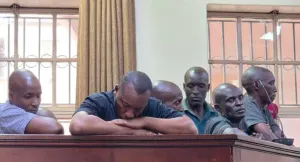
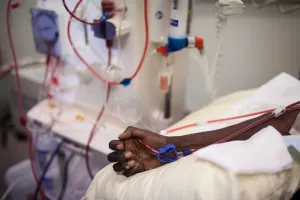
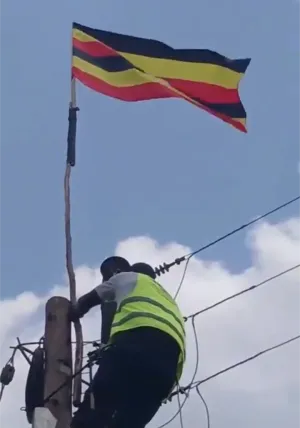
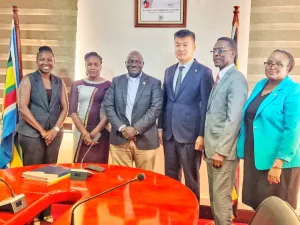
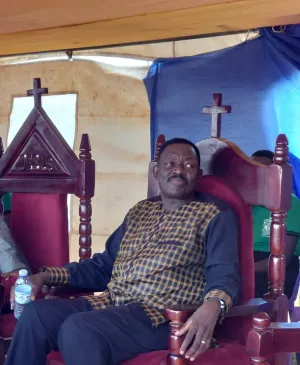

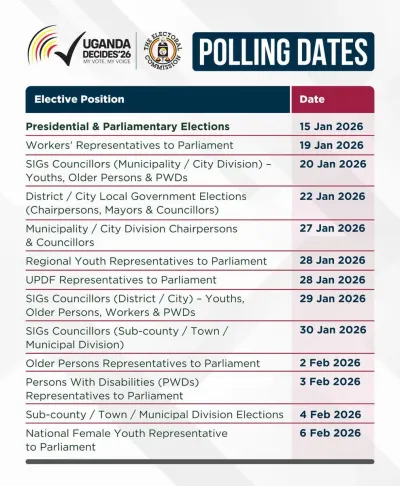



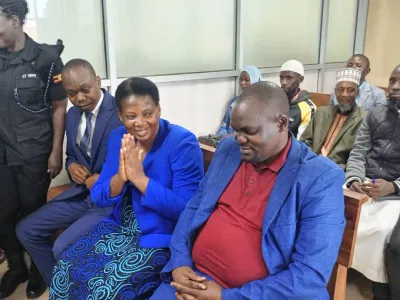

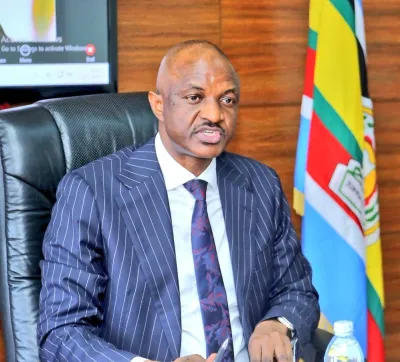

Ramathan Ggoobi
Ramathan Ggoobi is Policy Analyst, and Researcher. He lecturers economics at Makerere University Business School (MUBS) and has co-authored several studies on Uganda's economy. For the past ten years, he has published a weekly column 'Are You Listening Mr. President' in The Sunrise Newspaper, Uganda's Leading Weekly
Leave a Comment
Your email address will not be published.